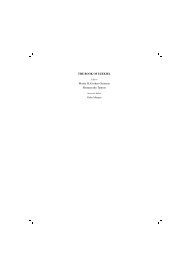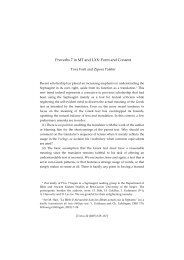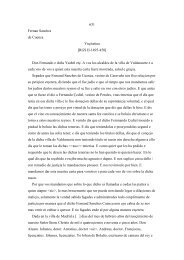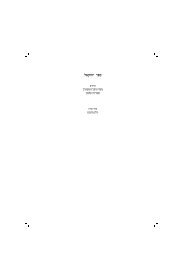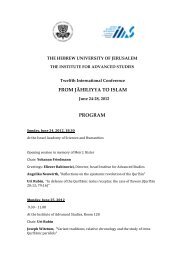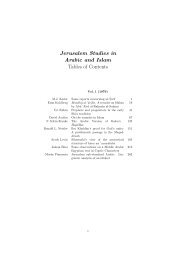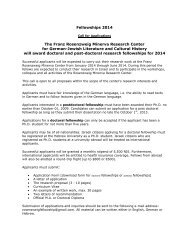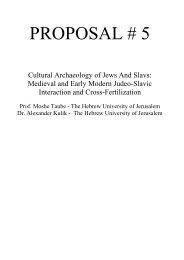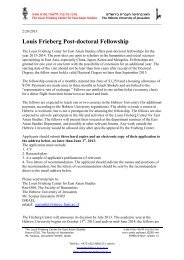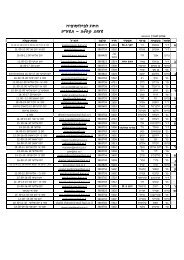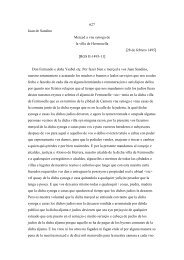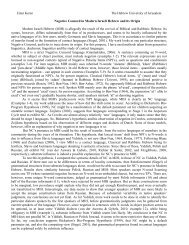Baber Johansen
Baber Johansen
Baber Johansen
You also want an ePaper? Increase the reach of your titles
YUMPU automatically turns print PDFs into web optimized ePapers that Google loves.
24<br />
It is not hidden to anyone that the acts follow rational judgments<br />
(anna li l-afÝÁli aÎkÁman Ýaqliyya)—i.e., perceived by the mind<br />
(mudraka bi l-Ýaql)—such as [the acts] being accidents, existing<br />
on a site [i.e., a body], different from substance [i.e., not being<br />
themselves bodies], and that they form events [in space]<br />
(akwÁn) 77 while in rest and while in movement, and the like of<br />
these. The [scholar] who knows these judgments is called a<br />
theologian (mutakallim), not a jurist. But the explanation of the<br />
legal qualifications of these acts as obligatory, forbidden,<br />
reprehensible, and recommended is only entrusted to the jurist. 78<br />
GhazÁlÐ leaves no doubt that theology, in his judgment, is the most<br />
rational and the most universal discipline. He lists a number of<br />
disciplines that he identifies with either universal or particular<br />
knowledge. Among these disciplines he mentions theology, applied law,<br />
the methodology of the law, the discipline that collects, authenticates and<br />
classifies the transmissions from the Prophet, and, finally, exegesis<br />
(tafsÐr). He then states:<br />
The universal discipline (al-Ýilm al-kullÐ)—among the religious<br />
disciplines—is theology. The other disciplines such as fiqh and its<br />
[methodological] foundations, and the transmission from the<br />
Prophet, and the exegesis (of revealed texts) are particular, partial<br />
[forms of] knowledge: the exegete only looks into the meaning of<br />
the Book [i.e. the QurÞÁn], in particular; the transmitter of ÎadÐth<br />
only looks into the methods of establishing [the authenticity and<br />
the meaning of] the ÎadÐth in particular; the jurist does not look<br />
into anything but the legal qualifications of the acts of the legally<br />
capacitated person (mukallaf), in particular, and the scholar [in<br />
the field of uÒÙl al-fiqh] (al-uÒÙlÐ) only looks into the indicants of<br />
the legal norms in particular. It is the theologian (mutakallim)<br />
who looks into the most general of all things and that is the<br />
existent world (al-mawjÙd). He subdivides the existent first into<br />
the eternal (qadÐm) and that what came into existence in time<br />
(ÎÁdith). Then he divides what was created into substance



